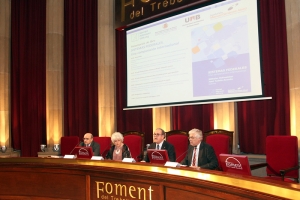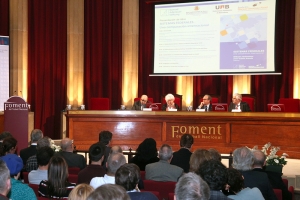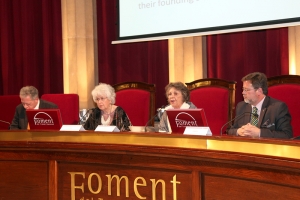 Federal systems can be as diverse and effective as the social, cultural and political reality of each territory. This is the conclusion reached by the participants in the presentation of the book “Sistemas Federales. Una comparación internacional” (Federal Systems: an international comparison), a compendium of Wilhelm Hofmeister and José Tudela Aranda edited by the Manuel Giménez Abad Foundation for Parliamentary Studies and the Autonomous State and the Konrad Adenauer Foundation. The event was held in Barcelona this Monday, March 20, organized by the Royal European Academy of Doctors-Barcelona 1914 (RAED).
Federal systems can be as diverse and effective as the social, cultural and political reality of each territory. This is the conclusion reached by the participants in the presentation of the book “Sistemas Federales. Una comparación internacional” (Federal Systems: an international comparison), a compendium of Wilhelm Hofmeister and José Tudela Aranda edited by the Manuel Giménez Abad Foundation for Parliamentary Studies and the Autonomous State and the Konrad Adenauer Foundation. The event was held in Barcelona this Monday, March 20, organized by the Royal European Academy of Doctors-Barcelona 1914 (RAED).
 Celina de Souza, a researcher at the Federal University of Bahia (Brazil), spoke about the model of her country. “Federalism in Brazil is guaranteed in the Constitution and is given at three levels: the federal government, the state government and the municipal government. Brazilian federalism is very different from other countries, it’s peculiar. Belgium and India have a similar federalism, but, for example, differs a lot from that of the United States”.
Celina de Souza, a researcher at the Federal University of Bahia (Brazil), spoke about the model of her country. “Federalism in Brazil is guaranteed in the Constitution and is given at three levels: the federal government, the state government and the municipal government. Brazilian federalism is very different from other countries, it’s peculiar. Belgium and India have a similar federalism, but, for example, differs a lot from that of the United States”.




